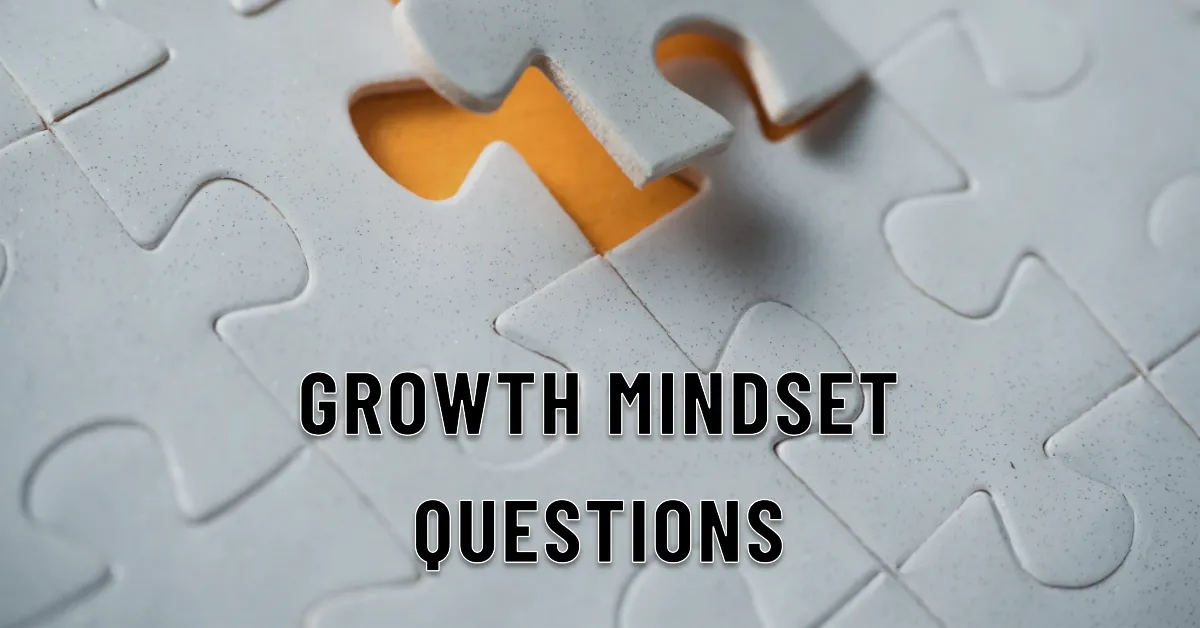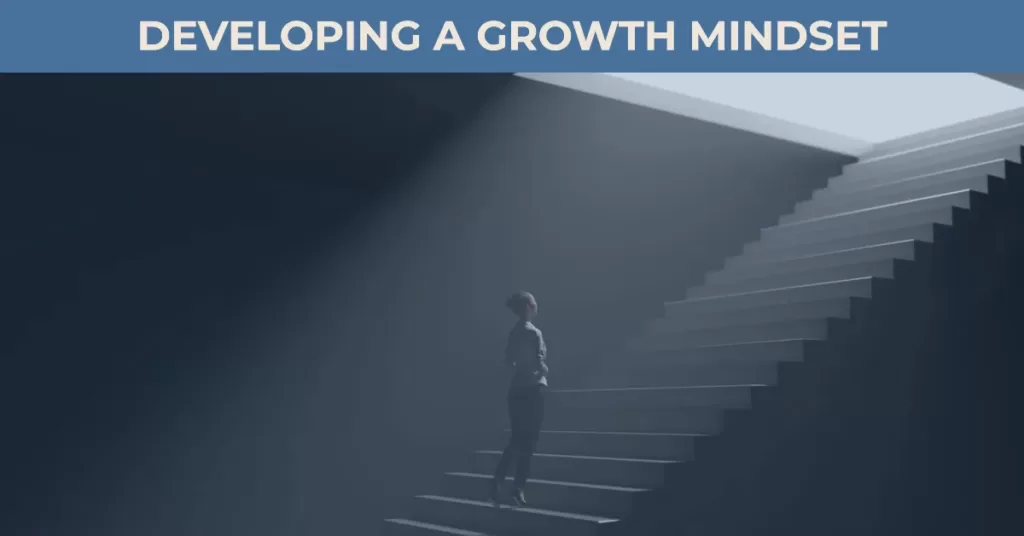In the entrepreneurial world, where success often masquerades as a simple game of luck or serendipity, there exists a more substantial and reliable underpinning: the growth mindset. This concept, not as elusive as finding a four-leaf clover in a field of green, can be cultivated and harnessed to fuel entrepreneurial success. It champions the idea that abilities are not fixed but can be honed through perseverance, effort, and an insatiable thirst for learning. Embracing failures as stepping stones toward progress; setting achievable goals; maintaining optimism amidst setbacks; demonstrating resilience; seeking constructive criticism – these form the cornerstone of this mindset. This discussion aims to provide practical insights on fostering such a mentality while navigating through the unpredictable seas of entrepreneurship. The application of this mindset within business operations will also be explored, providing valuable guidance toward sustainable development and success in one’s entrepreneurial journey.
Table of Contents
- 1 Key Takeaways
- 2 Understanding the Concept of a Growth Mentality
- 3 Importance of Embracing Failures
- 4 Cultivating Lifelong Learning Habits
- 5 Setting Achievable Goals
- 6 Maintaining Optimism in the Face of Setbacks
- 7 Practicing Resilience and Perseverance
- 8 Seeking Constructive Criticism
- 9 Applying the Growth Mentality to Your Business
- 10 Frequently Asked Questions
Key Takeaways
- Embrace failures as stepping stones toward progress and use them as opportunities for learning and development;
- Seek constructive criticism from mentors, peers, and customers to identify areas for improvement and refine strategies;
- Cultivate a positive attitude and maintain optimism amidst setbacks to inspire others and increase commitment toward organizational objectives;
- Foster resilience, determination, and adaptability to overcome obstacles, bounce back from failures, and continuously grow and improve.
Understanding the Concept of a Growth Mentality
Grasping the concept of a growth mentality necessitates an understanding that abilities and intelligence can be developed, contrary to the fixed mindset perspective that suggests these traits are innate and unchangeable. A growth mindset as an entrepreneur embodies a set of beliefs that enables individuals to embrace challenges, persist in the face of setbacks, view effort as the path to mastery, learn from criticism, and find lessons and inspiration in others’ success.
Understanding the concept of a growth mentality involves recognizing its contrast with a rigid mindset. While a rigid mindset tends to foster fear of failure and avoidance of challenges due to perceived limitations in ability or intelligence, an open mindset views these very elements as opportunities for learning and development. Entrepreneurs with this outlook do not shy away from obstacles; instead, they seek them out as platforms for improvement.
The process of cultivating such an outlook requires conscious effort. It is not merely about adopting positive thinking but also about reconditioning one’s thought patterns toward lifelong learning. It demands persistent practice in reframing failures as valuable feedback rather than detrimental outcomes.
Developing a growth mindset should not be viewed as a destination but rather as an ongoing journey. This journey involves fostering resilience, determination, and adaptability – all the key ingredients for entrepreneurial success. The flexibility inherent in this mental framework empowers entrepreneurs to continuously evolve their strategies according to changing circumstances without being held back by fear or self-doubt.
As entrepreneurs continue on this journey toward nurturing their growth mindsets, it becomes increasingly evident that potential barriers transform into stepping stones toward advancement – a testament indeed that understanding the concept of a growth mentality is fundamental for entrepreneurial success.
Importance of Embracing Failures
Understanding the significance of failures and viewing them as opportunities for learning rather than setbacks can drastically alter the trajectory of a business venture. Embracing failures is an essential aspect of fostering a growth mindset, as it promotes the ability to persist in the face of challenges. The importance of embracing failures cannot be overstated: it is through mistakes that entrepreneurs glean valuable insights, adjust strategies, and refine their approaches.
In promoting a growth mindset, one must learn from failures rather than shying away from them. It creates resilience and fosters innovation by encouraging risk-taking and experimentation, both vital components in entrepreneurship. Failure should not be viewed as an end but as a stepping stone toward reaching the intended goals. This perspective encourages entrepreneurs to view challenges as opportunities for development and expansion.
The process of embracing failures involves recognizing errors or missteps not as personal shortcomings but as productive feedback. It provides insights into what works and what does not within the entrepreneurial framework. A failure may highlight unforeseen market trends or expose inefficiencies within operational systems – both invaluable pieces of information that can lead to improved performance.
Additionally, viewing failure positively impacts decision-making processes. Entrepreneurs with a growth mindset are less likely to make impulsive decisions grounded in fear; instead, they base their choices on learned experiences and calculated risks.
Therefore, cultivating an attitude where setbacks are seen as learning opportunities paves the way for continuous improvement – an integral part of maintaining competitiveness in today’s fast-paced business environment. This perspective embodies the essence of having a growth mindset: transforming challenges into opportunities for further progress.
Cultivating Lifelong Learning Habits
In the labyrinth of modern business, the torch that illuminates the path to success is not merely inherent talent or initial triumphs, but rather a steadfast commitment to lifelong learning. Cultivating lifelong learning habits provides an entrepreneur with the flexibility and adaptability necessary in a dynamic market environment. By undertaking a conscious effort to learn new things and develop new skills, entrepreneurship becomes an ever-evolving journey of personal growth.
The pursuit of knowledge should not be seen as a daunting task but rather as an exhilarating adventure. Every situation provides a unique learning opportunity; every challenge faced becomes an avenue for acquiring new insights and understanding. Developing this perspective enables entrepreneurs to see beyond immediate obstacles and view them as stepping stones toward larger goals.
Learning is not confined within institutional walls or structured programs; it permeates every facet of life. This could range from reading industry-related articles, attending workshops or seminars, engaging in online courses, or simply observing patterns in daily interactions and experiences. By continuously seeking knowledge and understanding in various forms, entrepreneurs transform their businesses into platforms for innovation and creativity.
Entrepreneurs must remember that business landscapes are constantly evolving. What worked yesterday may not necessarily work today; thus maintaining relevance requires continuous learning and adaptation. Cultivating this mindset encourages resilience amidst adversity and nurtures agility when navigating uncertainties. With such an approach toward personal growth through lifelong learning, entrepreneurship becomes less about surviving challenges and more about thriving amidst them – turning ideas into action, dreams into reality, and vision into success – all while learning new things along the way.
Setting Achievable Goals
Establishing attainable objectives is a critical strategy for business owners, as it provides a clear direction and measurable milestones toward success. Key to this process is the understanding that setting achievable goals plays an integral role in fostering the growth mindset essential for entrepreneurship. This strategy enables entrepreneurs to transform their visions into tangible actions, thereby creating a roadmap toward business success.
Successful entrepreneurs recognize the importance of goal setting as a mechanism for driving progress and maintaining motivation. When targets are realistic and within reach, they can provide immediate motivation and satisfaction, propelling one’s drive forward. Furthermore, achieving these goals fuels self-confidence – a trait vital in entrepreneurial ventures.
The practice of setting achievable goals also cultivates resilience among entrepreneurs by providing opportunities to learn from failures and setbacks. As part of this learning process, business owners re-evaluate their strategies and readjust their objectives accordingly – demonstrating how a growth mindset is essential for long-term success.
Entrepreneurs must develop a growth mindset by adopting practices such as task organization, time management, objective progress evaluation, and self-insight. This approach not only makes the journey toward achievement less irritating and also allows for regular assessment of progress and timely adjustments when required.
Achieving your goals as an entrepreneur requires persistence, flexibility, and unwavering dedication combined with strategic planning through goal setting. It necessitates viewing challenges not as insurmountable hurdles but as opportunities for learning and improvement – embodying the spirit of entrepreneurial resilience that underscores successful businesses worldwide.
Maintaining Optimism in the Face of Setbacks
Maintaining a positive outlook amidst adversities often proves challenging, yet it remains an indispensable trait for business owners seeking to navigate the turbulent waters of entrepreneurship successfully. The entrepreneur’s journey is fraught with hurdles and stumbling blocks that can potentially hinder progress or lead to failure. However, maintaining optimism in the face of setbacks can significantly propel an entrepreneur toward success.
The adoption of a growth mindset by entrepreneurs involves seeing challenges not as insurmountable problems but as opportunities to learn and grow. This perspective enables them to perceive setbacks as stepping stones rather than obstacles, thereby fostering resilience in adverse situations. It encourages persistence in striving for goals despite difficulties encountered along the way.
Cultivating a positive attitude can inspire others within the organization, creating an environment conducive to innovation and productivity. When leaders exhibit optimism even when facing setbacks, employees are likely to emulate this behavior leading to improved team morale and increased commitment toward achieving organizational objectives.
Facing adversity with optimism does not mean ignoring reality or downplaying difficulties; instead, it entails acknowledging challenges while remaining steadfast in one’s belief and overcoming them through continuous learning and improvement. Henceforth, entrepreneurs who master this approach are likely to position themselves on the path toward sustained success amid entrepreneurial turbulence.
Practicing Resilience and Perseverance
Overcoming obstacles and bouncing back from failures are integral parts of the entrepreneurial journey, a process that calls for relentless resilience and perseverance. The entrepreneurial spirit is characterized by a continuous desire for growth and expansion, fueled by an unwavering commitment to overcome challenges. This unique blend of resilience and perseverance is what entrepreneurs know as essential elements necessary to succeed in this competitive business landscape.
Practicing resilience involves developing the ability to recover quickly from adversities or setbacks. Entrepreneurs must cultivate mental toughness, which allows them not just to survive, but thrive amidst difficulties. This requires adopting strategies such as maintaining a positive outlook, setting realistic goals, seeking support when needed, and learning from past mistakes.
Perseverance complements resilience by embodying the persistent pursuit of one’s objectives despite encountering obstacles along the way. It encourages entrepreneurs to continue their efforts toward achieving their business goals, even when faced with unexpected hurdles. Successful entrepreneurs view these stumbling blocks not as roadblocks but as opportunities for learning and improvement.
In contrast to common misconceptions that paint successful businesses as overnight accomplishments, real success comes from consistent hard work punctuated by moments of failure and recovery. The path toward establishing a successful business is fraught with challenges that test one’s resolve; it is through practicing resilience and perseverance that entrepreneurs can navigate these trials effectively.
One must remember that building a prosperous enterprise requires more than mere ambition – it demands an unwavering commitment to endure adversity while continuously striving for growth and expansion – an ethos at the core of every entrepreneur’s journey.
Seeking Constructive Criticism
Navigating the path to business success invariably involves embracing constructive criticism as a valuable tool for advancement and improvement. The journey of entrepreneurship is full of twists, turns, and challenges that require an ability to develop and improve continuously. A growth mindset is critical in this regard; it motivates entrepreneurs to seek out new opportunities to learn and grow rather than shying away from them.
- Constructive criticism provides an avenue for entrepreneurs to become aware of areas they may have overlooked or underestimated. This awareness facilitates improvement by highlighting areas requiring attention.
- Seeking feedback from customers can provide valuable insights into how products or services can be better tailored to meet their needs.
- Soliciting advice from mentors or industry peers can expose entrepreneurs to different perspectives and strategies, providing lessons that may not have been learned otherwise.
- Regularly reviewing business performance against set goals allows for adjustments to be made proactively before minor issues escalate.
A growth mindset encourages viewing criticism not as a personal attack but rather as an opportunity for development. It involves understanding that valuable lessons often come disguised as setbacks or criticisms. Therefore, seeking constant constructive criticism becomes integral in maintaining forward momentum on the entrepreneurial journey.
Adopting such a viewpoint also fosters resilience – another crucial aspect of successful entrepreneurship. With each critique taken onboard objectively, one’s resilience strengthens resulting in an increased capacity to navigate future challenges effectively.
Entrepreneurs who actively seek constructive criticism stand better equipped at spotting potential pitfalls ahead and making necessary corrections promptly thereby enhancing their chances of attaining business success while simultaneously fostering a growth mindset that will continue benefiting them throughout their entrepreneurial journey.
Applying the Growth Mentality to Your Business
How can the application of a progressive mentality to your business operations lead to enhanced performance and long-term success? The successful entrepreneur understands the importance of maintaining an open mindset, which involves welcoming change, embracing challenges, and persisting in the face of setbacks. This mentality allows entrepreneurs to identify areas for improvement and continuously adapt their strategies with the aim to grow their business.
The first step toward applying this growth mentality is recognizing its potential benefits. Here’s a table summarizing the key outcomes:
| Growth Mindset Outcome | Impact on Business |
|---|---|
| Embracing Challenges | Allows for innovative solutions that improve your business |
| Persistence | Fosters resilience during tough times |
| Flexibility | Enables quick adaptation to changing market trends |
| Continuous Learning | Attracts more customers by constantly improving products and services |
Adopting this approach opens up opportunities for constant learning and innovation. It encourages risk-taking in order to achieve higher levels of success. It fosters an environment where failure is seen not as a defeat, but as an opportunity for learning and growth.
Moreover, it increases engagement within organizations, leading to improved productivity. When leaders adopt a growth mindset culture within their companies, employees are empowered to take ownership of their work, offer creative insights, and feel valued – all contributing positively toward overall corporate performance.
The journey toward adopting a growth mindset may be challenging at first. However, with continuous efforts and determination, it becomes integral to how one thinks about running their business – eventually leading them toward greater profitability while also enhancing customer satisfaction levels over time.
To summarize, a growth mindset for an entrepreneur is not just an open mindset. It is a high-performance mindset; it is the will to do whatever it takes and it’s often said that only 5% of people on this planet possess such an iron willpower.
Frequently Asked Questions

In this FAQ section, we aim to address some commonly asked questions that may arise while embarking on the journey of cultivating a growth mindset. Whether you are a seasoned entrepreneur or just starting out, we understand that adopting a growth mindset can be both exciting and challenging. Therefore, I have curated a list of frequently asked questions to provide you with valuable insights and guidance. So, let’s dive in and explore the answers to these questions, empowering you to embrace a growth mindset and unlock your full potential as an entrepreneur.
Q: How can developing a growth mindset impact my personal life, not just my business?
Developing a growth mindset nurtures resilience, fosters continuous learning, and encourages perseverance. This psychological transformation positively influences personal relationships, life satisfaction, and overall mental wellbeing, extending beyond the realm of entrepreneurship into all aspects of life.
Q: Are there certain personality types that are more inclined to have a growth mindset?
Is personality type a determinant of a growth mindset? Research suggests that individuals with open, proactive personalities are more likely to possess a growth mindset, demonstrating adaptability and resilience in the face of challenges.
Q: How can I encourage a growth mindset within my team or employees?
To cultivate a growth mindset within a team, leaders should foster an environment that values learning and resilience. Encouraging initiative, providing constructive feedback, and rewarding effort rather than just outcomes can also effectively nurture this mindset.
Q: Are there any more books or resources apart from your “High-Performance Mindset” guidebook mentioned earlier in the article?
Indeed, numerous resources are available to deepen understanding of the growth mindset. If you are looking to reframe your thinking patterns and develop mental toughness and resilience, I would recommend reading “The Predator Mindset: Mental Toughness in Practice” – as the name suggest, it’s about building an iron will and reframing obstacles as opportunities. On the other hand, if you are looking for strategies to help you with motivation and embracing the success path in life, you can read through “Winning Mindset: Secrets of the Champions” – this one will help you understand how winners think and what separates them from regular people; it will also present you with mental exercises that will help you embrace the mentality of a winner.
Q: Can a growth mindset be applied to other areas of business like marketing or finance?
Indeed, a growth mindset can be applied across various business domains including marketing and finance. It fosters flexibility, adaptability, and innovation – key attributes for identifying opportunities and driving success in these fields.




